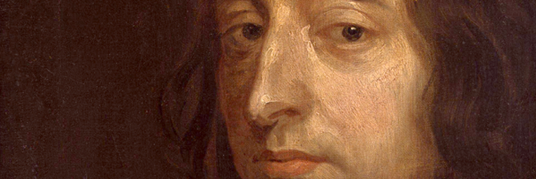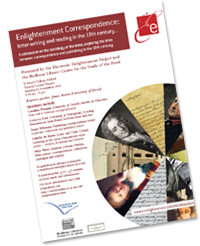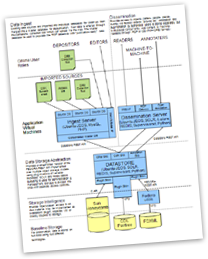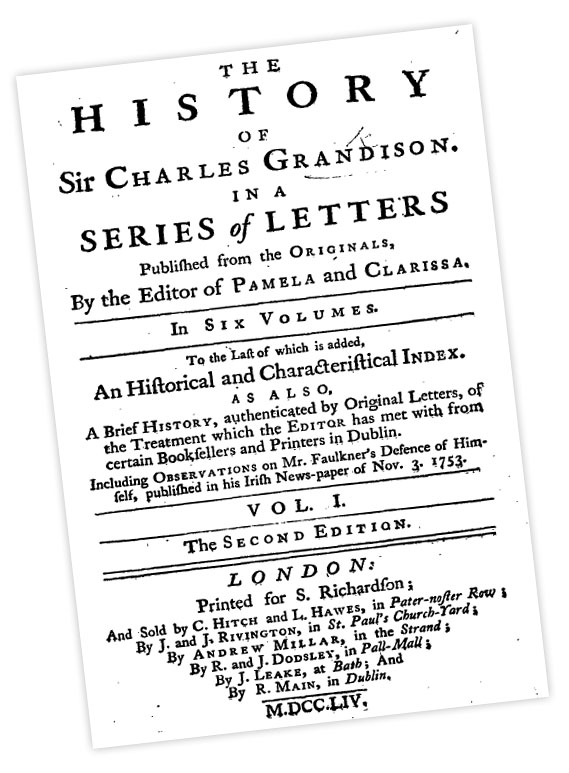* You are viewing Posts Tagged ‘Bodleian Resources’
James Brown
February 21, 2011
Project Updates, Publications, Websites and Databases
Tags: Bodleian Resources, Europe, France, History of Medicine, Martin Lister, Montpellier, Networks, Seventeenth Century
 In 1663, Martin Lister left his parents’ house in Burwell, Lincolnshire to study medicine in Montpellier. Whilst in France, he kept a journal in an almanac entitled Every Man’s Companion: Or, An useful Pocket-Book (MS Lister 19, Bodleian Library).
In 1663, Martin Lister left his parents’ house in Burwell, Lincolnshire to study medicine in Montpellier. Whilst in France, he kept a journal in an almanac entitled Every Man’s Companion: Or, An useful Pocket-Book (MS Lister 19, Bodleian Library).
Month by month, Lister noted the medical texts he consulted (and the French romances and comedies he read) in this thin octavo, and annotated the recipes given to him when he lodged with an apothecary. He described the personalities and works of luminaries he met in France including William Croone, Nicolas Steno, and John Ray. Lister performed a series of dissections with Steno, as well as going on natural history expeditions with Ray. Lister also attended the salon of Sir Thomas Crew to discuss ornithology, medicine, and literature, mixing with other fellows of Cambridge and English expatriates. As his time in Montpellier was part of his education as a gentleman, Lister made detailed notes about his visits to gardens and libraries in Paris, manufacturing methods, viniculture, literature and drama, and rules of politesse and art connoisseurship.
Dr Anna Marie Roos, our Lister Research Fellow, has recently been awarded a British Academy Small Research Grant to create a textual edition of the pocketbook with appropriate apparatus. To annotate the edition, she will also utilize 25 pages of memoirs of Lister’s time in Montpellier and 43 pieces of Lister’s French correspondence in the Bodleian Library and in France. As the account of Lister’s journey is so detailed, his grand tour and memoirs will also be recreated as an interactive website using maps, images, and texts, providing a virtual introduction to an early modern medical education.

The Project is delighted to announce the presentation of transcriptions of almost all of the surviving correspondence of the jurist, historian, Hebraist, and polymath John Selden (1584–1654). The transcriptions have been generously provided by Professor Gerald J. Toomer, who prepared them (originally for his own research purposes, not for publication) in the course of the research for his magnum opus John Selden: A Life in Scholarship (Oxford: Oxford University Press, 2009). Selden, many of whose letters survive among the holdings of the Bodleian Library, was widely regarded as the most important scholar in Britain in the seventeenth century. He was a major antiquary and historian of English law, whose work was unrivalled before Maitland in the nineteenth century. He was also a central figure in the transmission of Oriental learning to the West, and was acknowledged in his lifetime as one of the greatest Christian authorities on Jewish law and history. He encouraged the study of Arabic, and produced the first English edition of an Arabic text. He was also an internationally recognised theorist of international law (in his Mare Clausum) and natural law (De Iure Naturali et Gentium). His works were caught up in many of the most controversial religious and political issues of the day, provoking praise and polemic in Britain and Europe. His correspondence network extended to northern Europe and eastwards to Aleppo.
The discussions which led to Professor Toomer’s generous agreement to the presentation of these transcriptions on our website were initiated at and facilitated by the international conference John Selden, 1584-1654: Scholarship in Context (Magdalen College, Oxford, 24-26 June 2010), organized by Thomas Roebuck and Jeffrey Miller in association with the Centre for Early Modern Studies and the Centre for the Study of the Book.
The transcriptions will be available in a fully searchable form within our union catalogue at its launch in September 2011. In the interim, we are pleased to be able to provide them as a pdf file (13.5 MB).
Please note that the copyright of the transcriptions remains with Professor Toomer, and that you should not quote from them in papers or scholarly publications without prior written permission (please contact the Project in the first instance). Professor Toomer would also like it to be emphasised that the document is not a conventional scholarly edition, and should not be judged by those standards; the transcriptions were prepared for private use rather than for publication, and in most cases have not been checked against the originals.
Kim McLean-Fiander
November 12, 2010
Conferences and Workshops, Events, Project Updates, Projects and Centres
Tags: Bodleian Resources, Databases, Digital Miscellanies Index, Digitization, Eighteenth Century, Electronic Enlightenment, Seventeenth Century, Union Catalogue
A report on the roundtable is now available on the CEMS blog
 On Thursday 18 November 2010, the Centre for Early Modern Studies (CEMS) at Oxford will host a roundtable presentation of three early modern digital projects, comprising Cultures of Knowledge (James Brown), Electronic Enlightenment (Robert McNamee), and the Digital Miscellanies Index (Abigail Williams and Jennifer Batt). The event will take place from 12.30-2.00pm at the Oxford e-Research Centre, 7 Keble Road. Tea and coffee will be provided, but please bring your own lunch. For more information, visit the CEMS website.
On Thursday 18 November 2010, the Centre for Early Modern Studies (CEMS) at Oxford will host a roundtable presentation of three early modern digital projects, comprising Cultures of Knowledge (James Brown), Electronic Enlightenment (Robert McNamee), and the Digital Miscellanies Index (Abigail Williams and Jennifer Batt). The event will take place from 12.30-2.00pm at the Oxford e-Research Centre, 7 Keble Road. Tea and coffee will be provided, but please bring your own lunch. For more information, visit the CEMS website.
 The first Electronic Enlightenment colloquium on the sociology of the letter – Enlightenment Correspondence: Letter-Writing and Reading in the Eighteenth Century – will take place at St Anne’s College on Saturday 13 November 2010. Co-sponsored by the Bodleian Library’s Centre for the Study of the Book, the colloquium will provide a forum for academics and graduate students interested in both correspondence about publishing and the publication of correspondence itself in the Enlightenment period. The event includes papers by keynote speaker James Raven and other scholars from the UK and US on publishing and private correspondence, letters in lives and works, letters as primary sources, and letters as historical documents. For further information, including a list of speakers, paper titles, the programme schedule, and registration information, please visit the colloquium webpage.
The first Electronic Enlightenment colloquium on the sociology of the letter – Enlightenment Correspondence: Letter-Writing and Reading in the Eighteenth Century – will take place at St Anne’s College on Saturday 13 November 2010. Co-sponsored by the Bodleian Library’s Centre for the Study of the Book, the colloquium will provide a forum for academics and graduate students interested in both correspondence about publishing and the publication of correspondence itself in the Enlightenment period. The event includes papers by keynote speaker James Raven and other scholars from the UK and US on publishing and private correspondence, letters in lives and works, letters as primary sources, and letters as historical documents. For further information, including a list of speakers, paper titles, the programme schedule, and registration information, please visit the colloquium webpage.
 Neil Jefferies, who oversees the technical attributes of our union catalogue, will be presenting on the digital components of the Project next month at a conference entitled Digital Library: Digitising and Accessing Content (Slovakia, 22-24 September 2010). The event will bring together libraries from across Europe to share technologies, best practices, and emerging global standards in the field of large data sets and metadata preservation in the cultural and heritage sectors. Neil, who will also be delivering a keynote lecture at the conference, will be describing the catalogue’s innovative system architecture and its relationship to the Digital Asset Management System, which has been developed as a platform to support digital library projects within Oxford. Further details are available on the conference website.
Neil Jefferies, who oversees the technical attributes of our union catalogue, will be presenting on the digital components of the Project next month at a conference entitled Digital Library: Digitising and Accessing Content (Slovakia, 22-24 September 2010). The event will bring together libraries from across Europe to share technologies, best practices, and emerging global standards in the field of large data sets and metadata preservation in the cultural and heritage sectors. Neil, who will also be delivering a keynote lecture at the conference, will be describing the catalogue’s innovative system architecture and its relationship to the Digital Asset Management System, which has been developed as a platform to support digital library projects within Oxford. Further details are available on the conference website.
 A lecture by Susan E. Whyman entitled ‘Letter Writing, Reading, and the Rise of the Novel: Jane Johnson of Olney and Samuel Richardson’ will take place at Convocation House of Oxford’s Bodleian Library on Tuesday 4 May 2010 at 1pm. In the lecture, which is organised by the Friends of the Bodleian, Dr Whyman (author of The Pen and the People: English Letter Writers, 1660-1800 [Oxford, 2009]) will use the Bodleian’s manuscripts of Jane Johnson of Olney (1706-59) and the letters of Samuel Richardson (1689-1761) to explore the complex relationship between reading, letter writing, and the rise of the novel in the eighteenth century. Admission is free, and all are welcome. Wine and sandwiches will be available at Chancellor’s Court after the lecture at a cost of £7 per person, for which bookings should be made with the Administrator. If you would like to attend, please RSVP to fob@bodleian.ox.ac.uk.
A lecture by Susan E. Whyman entitled ‘Letter Writing, Reading, and the Rise of the Novel: Jane Johnson of Olney and Samuel Richardson’ will take place at Convocation House of Oxford’s Bodleian Library on Tuesday 4 May 2010 at 1pm. In the lecture, which is organised by the Friends of the Bodleian, Dr Whyman (author of The Pen and the People: English Letter Writers, 1660-1800 [Oxford, 2009]) will use the Bodleian’s manuscripts of Jane Johnson of Olney (1706-59) and the letters of Samuel Richardson (1689-1761) to explore the complex relationship between reading, letter writing, and the rise of the novel in the eighteenth century. Admission is free, and all are welcome. Wine and sandwiches will be available at Chancellor’s Court after the lecture at a cost of £7 per person, for which bookings should be made with the Administrator. If you would like to attend, please RSVP to fob@bodleian.ox.ac.uk.
 In 1663, Martin Lister left his parents’ house in Burwell, Lincolnshire to study medicine in Montpellier. Whilst in France, he kept a journal in an almanac entitled Every Man’s Companion: Or, An useful Pocket-Book (MS Lister 19, Bodleian Library).
In 1663, Martin Lister left his parents’ house in Burwell, Lincolnshire to study medicine in Montpellier. Whilst in France, he kept a journal in an almanac entitled Every Man’s Companion: Or, An useful Pocket-Book (MS Lister 19, Bodleian Library).




 A lecture by Susan E. Whyman entitled ‘Letter Writing, Reading, and the Rise of the Novel: Jane Johnson of Olney and Samuel Richardson’ will take place at Convocation House of Oxford’s Bodleian Library on Tuesday 4 May 2010 at 1pm. In the lecture, which is organised by the
A lecture by Susan E. Whyman entitled ‘Letter Writing, Reading, and the Rise of the Novel: Jane Johnson of Olney and Samuel Richardson’ will take place at Convocation House of Oxford’s Bodleian Library on Tuesday 4 May 2010 at 1pm. In the lecture, which is organised by the 
 Join
Join 